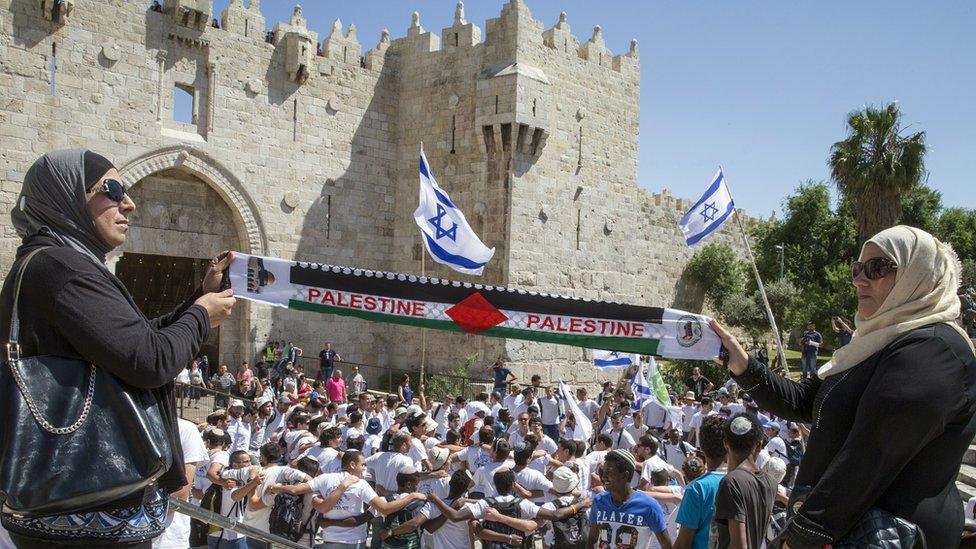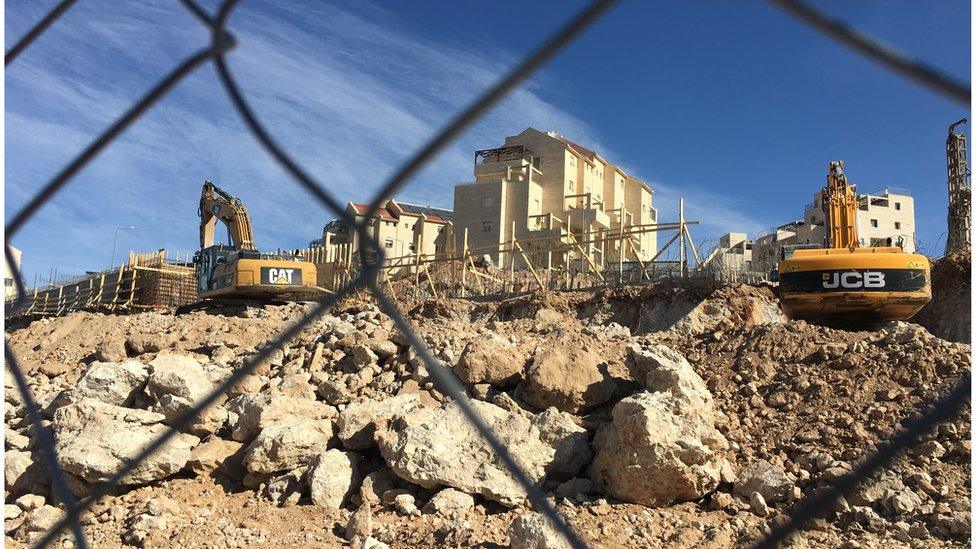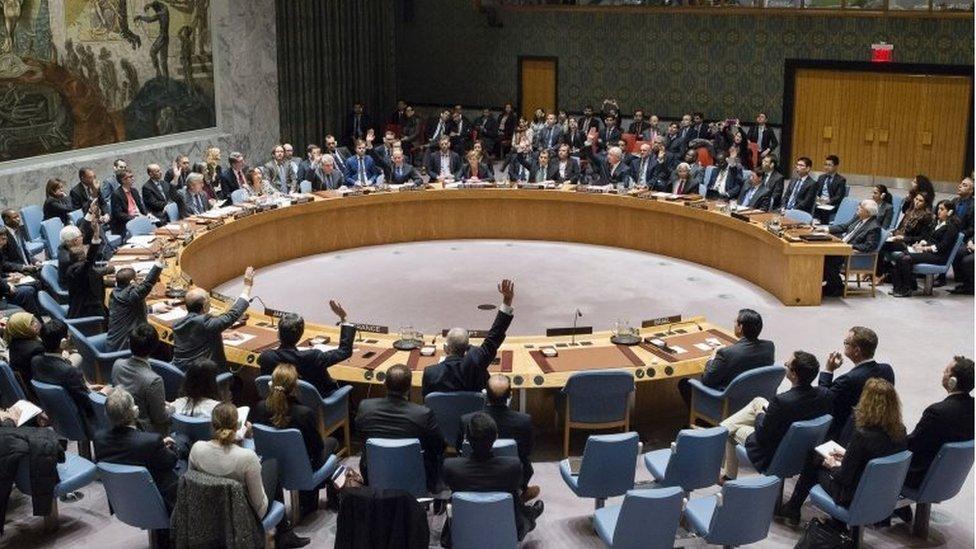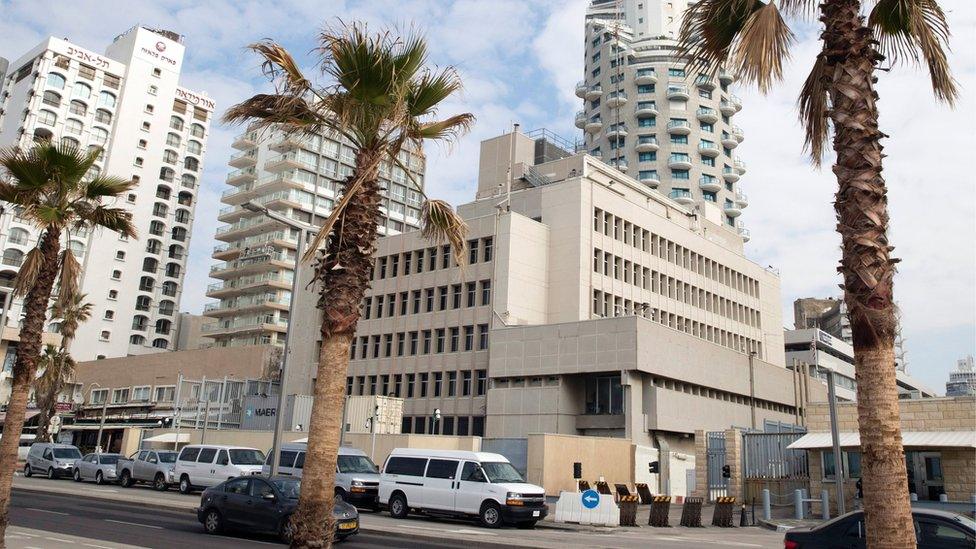Can Paris summit save fading two-state solution?
- Published

The fate of Jerusalem is one of the most contentious issues between the two sides
For many, the holy city of Jerusalem is meant to be a shared capital for Israel and the Palestinians - two peoples in two nations, living peacefully, side-by-side.
At least that is the dream of the so-called "two-state solution" to end a decades-old conflict.
The idea has been set out in UN resolutions going back to the mid-'70s, driving diplomatic efforts that culminated in the breakthrough 1993 Oslo Accords.
But after many rounds of failed peace talks, it looks increasingly in jeopardy.
A summit taking place in Paris on Sunday is expected to try to signal to Israel and the next US president that establishing a Palestinian state is the only path to peace.

Palestinians say Israel must freeze settlement activity before talks can resume
France will host more than 70 countries and world powers for the conference, but there will be no Israelis or Palestinians present.
Well-informed sources confirm reports of a draft statement asking both sides "to officially restate their commitment to the two-state solution".
It will also affirm that the international community "will not recognise" changes to Israel's pre-1967 lines unless they are agreed with the Palestinians.
It will make clear "a negotiated solution" is "the only way to achieve enduring peace".
'Greater Israel'
The Palestinians welcome the French initiative but it is rejected by Israel's Prime Minister Benjamin Netanyahu.
"It's a rigged conference, rigged by the Palestinians with French auspices to adopt additional anti-Israeli stances," he said this week. "This pushes peace backwards."
The conference follows last month's UN Security Council resolution which called on Israel to stop settlement construction in the occupied West Bank and East Jerusalem.

Israel says many international forums are historically biased against it
Over 600,000 Israelis live in these areas which were captured in the 1967 Middle East war. They are seen as illegal under international law, but Israel disagrees.
This week, US President Barack Obama returned to the subject of settlements in an interview with Israel's Channel Two.
"The facts on the ground are making it almost impossible - at least very difficult, and if this trend line continues, impossible - to create a contiguous, functioning, Palestinian state," he said.
"If that's the case, then what you're embracing is a vision of Greater Israel in which an occupation continues indefinitely."
Embassy warning
The timing of the talks in Paris - just days before Donald Trump moves into the White House - appear very deliberate.
He has not yet spelt out his vision for the Middle East but has shown strong backing for the Israeli far-right.
He has nominated a lawyer, David Friedman, who is an outspoken critic of the two-state solution and supporter of settlements, to be his ambassador to Israel.
Mr Trump has also promised to move the US embassy to Jerusalem.

Palestinians say relocating the US embassy to Jerusalem will kill prospects for peace
Like other countries, the US currently keeps its embassy in Tel Aviv, as it does not recognise Israeli sovereignty over Jerusalem.
"This is very dangerous what President-elect Trump wants to do," Palestinian official, Mohammed Shtayyeh tells me. "It is American recognition that Jerusalem is part of the State of Israel."
"We would consider this American move as an end to the peace process, an end to the two states and really putting the whole region into chaos."
Deep distrust
A poll conducted last year, external suggests that a slight majority of Palestinians - 51% - and Israelis - 59% - still support the two-state solution. However there is high mutual mistrust.
In recent days, Israeli officials have urged world leaders to refocus their attention on ways to tackle terrorism following a truck ramming by a Palestinian that killed four young soldiers in Jerusalem.
They argue that the very Palestinian leaders with whom they are supposed to be seeking peace have incited an upsurge in attacks, mostly stabbings, since October 2015.
Some 40 Israelis have been killed and more than 230 Palestinians have been shot dead by Israeli security forces. Israel says most of those Palestinians were involved in attacks. Others were killed in clashes with troops.
Palestinian leaders blame the violence on a younger generation's anger at the failure of talks to end Israel's occupation and deliver on promises of an independent state.